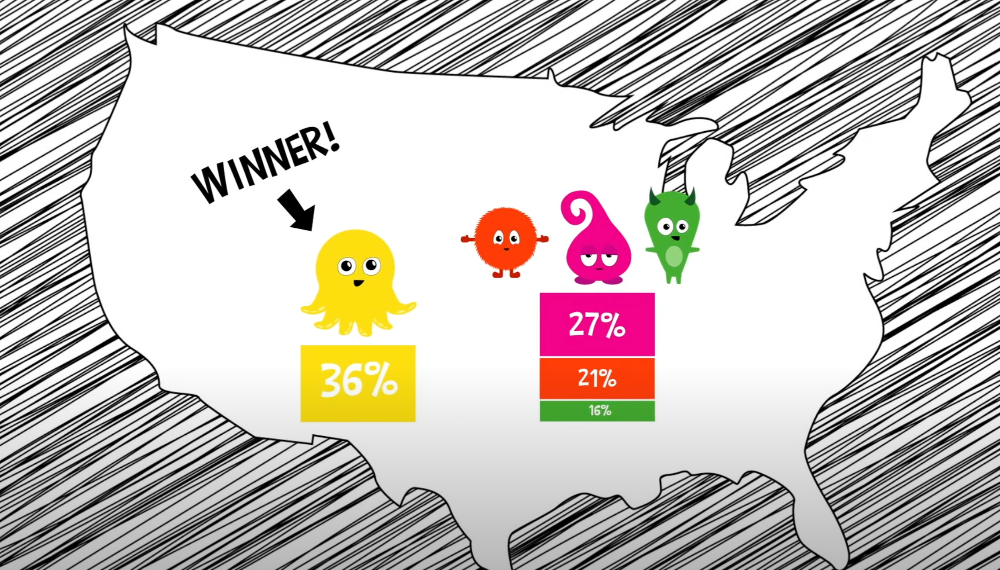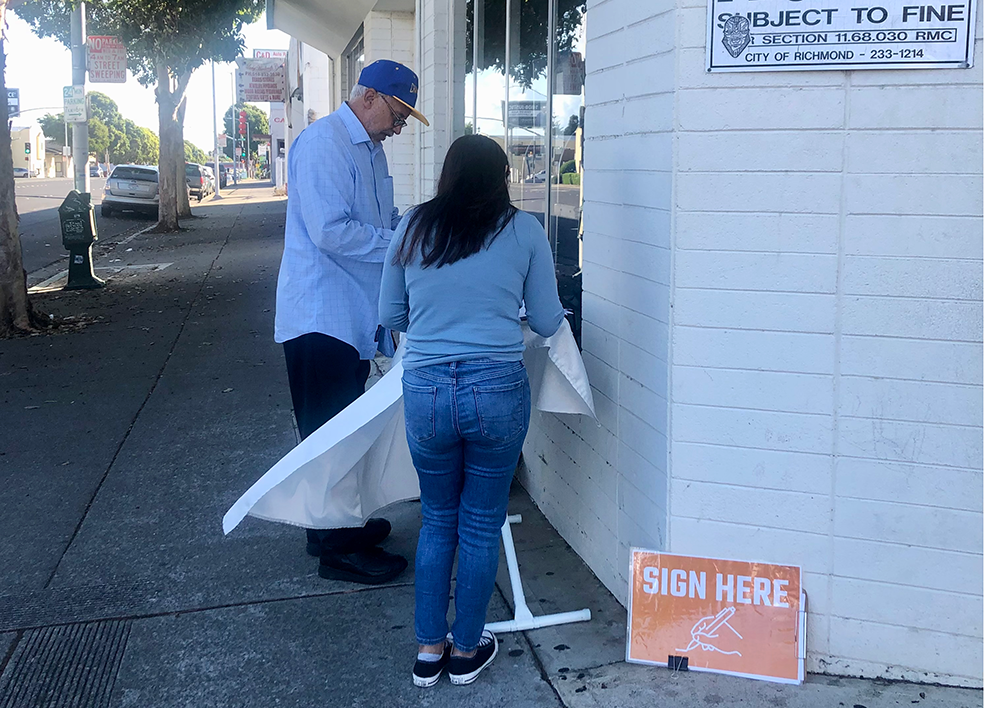

The Richmond City Council advanced a proposed ranked choice ballot measure to be added to the 2024 General Election ballot after a presentation at a special meeting Tuesday night.
The item directs the city attorney’s office to draft language for a ranked-choice ballot measure and an ordinance to allow the council to place the ballot measure language on the November ballot.
Ranked choice voting, also called instant runoff voting, allows voters to rank their candidates in order of preference. In a ranked-choice election, a candidate must earn more than half of the votes to win.
In most parts of the United States, voters select a single candidate for each position on their ballot. The candidate with the most votes wins. This is known as a single-choice winner-take-all, which can sometimes result in the election of a candidate who has only earned a small percentage of the vote, even when the majority of voters supported other candidates.
In a ranked-choice election, all first choices are counted; if a candidate has a majority, then they win just like any other election. If not, the candidate with the fewest votes is eliminated, and voters who pick that candidate as number one will have their votes count for their next choice. This process is continued until a candidate earns a majority and is declared the winner.
According to the presentation, in the United States, the candidate with the most first-choice votes wins 85 percent of the time.
No other Contra Costa cities have adopted ranked choice voting yet, according to Contra Costa County Assistant Registrar Helen Nolan.
“Richmond would need to pass a measure by the voters to adopt RCV,” Nolan told Grandview. “There would be an additional cost to the city if we were to conduct a RCV election on their behalf.”
Rank choice voting has been adopted in more and more places, including San Francisco, Berkeley, Oakland, and San Leandro.
Ken White a Richmond resident and California Ranked Choice Voting volunteer, said Contra Costa County uses Dominion Voting Systems which have an Instant Runoff RCV module that can be turned on easily.
“Other counties have paid $25,000 to $85,000 to have Dominion Voting systems turn on the ranked-choice voting feature that is already in place in those machines,” White said.
White said ranked-choice voting reduces vote splitting, allows candidates to run in coalitions, and allows endorsing organizations to support multiple candidates. According to White, Richmond has a unique opportunity to lead by putting instant runoff voting measures on the ballot in November.
“Richmond City Council Elections are currently decided by a plurality where the candidate that gets the most votes in each district wins even if that candidate gets less than 50 percent of the vote,” White said. “Almost all cities in California use plurality voting, and it always has the same disadvantages.”
Another voting scheme, the Richmond Election Reform Act, would add a primary election to the council race. RERA backers recently completed a successful petition campaign drive. If voters pass both proposals, the one with the most votes would be implemented.
 Grandview IndependentSoren Hemmila
Grandview IndependentSoren Hemmila
White says the Richmond Election Reform Act has some basic problems because it adds an additional election with an additional cost for the city and the candidates who would need to run two campaigns.
"This would likely freeze out less well-funded candidates,” White said.
Richmond primaries have a lower turnout than the general election and tend not to be very reflective of the city compared to general election voters, White said.
“Since primary voters could select a winner without a runoff, a third of Richmond voters would essentially be disenfranchised. If a runoff is needed, most voters will not have a say in who will compete in that runoff,” White said. “Under RERA, races would be decided either outright or in poorly attended primaries, and the two runoff candidates would be selected by a minority of voters.”
Marcela Miranda-Caballero, California Ranked Choice Voting Executive Director, said instant runoff voting has become the fastest-growing non-partisan voting reform in the nation, with more than 11 million voters having voted with ranked ballots in the US since 2004.
Rank choice proponents say the process will lead to more representative and equitable outcomes with more women and candidates of color elected.
“In the Bay Area, there are four cities that currently have 61 percent of their elected offices held by people of color. Before IRV that was 38 percent,” Miranda-Caballero said. “Oakland has never elected a woman mayor in its 160-year history before IRV. Now that it has IRV it’s elected three women in a row as mayor.”
Based on the July 2022 US Census Population Estimate, Richmond’s population comprises 114,301 individuals. Latinos constitute a significant portion, accounting for 44 percent of the city’s residents. Additionally, Black residents comprise 18.3 percent, followed by white non-Hispanic individuals at 17.5 percent and Asians at 14.2 percent.
Voter registration data from April 2024 shows that Richmond has 58,355 registered voters. In terms of racial demographics, 25.6 percent are Latino, 24.2 percent are Black, and 9.8 percent are Asian. Notably, the data does not include a specific category for white voters. However, voters who do not identify as Latino, African American, or Asian comprise 40.3 percent of the registered electorate.
One reason for the increased number of candidates is the reduced cost of running in an instant runoff election compared to an election with a primary and general election. Fewer barriers to entry make it easier for candidates to participate in the electoral process.
“The amount of money candidates have to raise is significantly less, and it is helpful for candidates who might not have a big funding apparatus,” Miranda-Caballero said.
In recent times, there has been an improvement in civil discourse among candidates in ranked-choice elections. To win, candidates require enthusiastic and broad support, meaning they need a strong number one voter amongst voters; however, that also means they may need a number two and number three voter to achieve a majority.
“It means you should avoid negative campaigning. It is an unwise tactic. You want to work with other candidates for their support. This, in turn, leads towards more civil campaigns that are focused on substantive issues that matter to voters,” Miranda-Caballero said.
Mayor Eduardo Martinez said the rank-choice voting system would ensure that Richmond voters are heard and that elections are decided by its residents, not corporations and special interest groups.
“We as Richmond leaders know that our residents have the knowledge and political awareness to rank candidates and vote for them on their merits, their integrity, compassion, and vision for the future of the city of Richmond,” Martinez said. “Instant runoff voting is the opposite of other initiatives that seek to disenfranchise voters and once again open the doors to big money into Richmond’s political arena.”
Help keep our content free for all!
Click to become a Grandview Supporter here. Grandview is an independent, journalist-run publication exclusively covering Richmond, CA. Copyright © 2024 Grandview Independent, all rights reserved.
